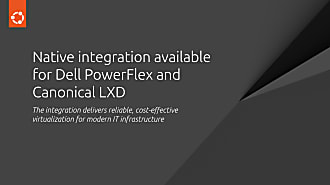Tom Callway
on 5 October 2015
Stephane Graber gave this talk at the recent Container Camp event on Sept 11th, 2015 at the Barbican Centre, London. He is a long time Open Source user and contributor mostly involved in the Edubuntu project, Ubuntu itself and LTSP. He is also the project lead for LXD and LXC at Canonical.



